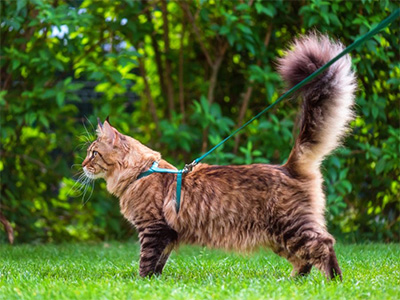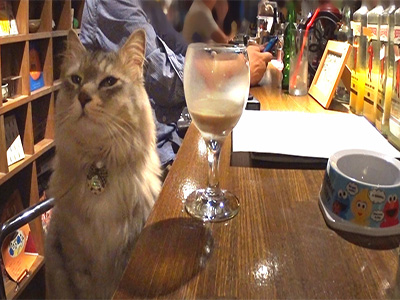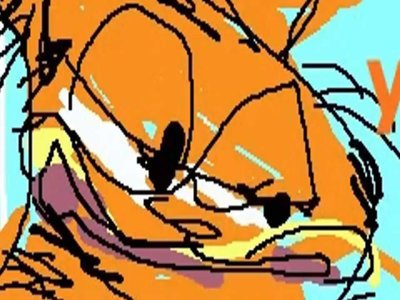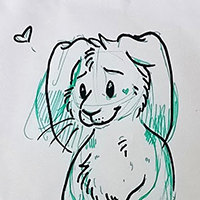-
Arsteakskan is a fork of Chinese for Chinese and English speakers. Its primary purpose is to serve as an auxiliary language for representing concepts in Chinese or English when one or more aspects of the Chinese meaning are missing (e.g. knowing how to say a character but not write it, knowing what a character looks like but not how to say it, ...).
-
Chinese words and grammar remain largely the same, except for the fact that Arsteakskan does not use tones as a primary method of determining meaning (although it can be explicitly specified). Arsteakskan words get their meaning from the context of the surrounding sentence.
-
There are a few Arsteakskan-specific words and grammar traits which extend Chinese grammar. Many of these are cat noises (it was written as a cat language).
Bopomofo is a character system designed to represent sounds in Chinese. In Arsteakskan, it can be used to represent sounds in Chinese and English, and can also be substituted for entire Chinese characters, English words, or transliterated names.
Onomatopoeia is almost exclusively represented as bopomofo, as well as a few Arsteakskan-specific words which do not exist in Chinese or English.
| Symbol | Sound | Example (Chinese) | Example (English) |
|---|---|---|---|
| ㄅ | b | ㄅㄚ (ba) to hold | ㄅㄚㄆ (bap) bap |
| ㄆ | p | ㄆㄠ (pao) to run | ㄆㄠㄋㄙ (paons) pounce |
| ㄇ | m | ㄇㄢ (man) slow | ㄇㄧㄠ (miao) meow |
| ㄈ | f | ㄈㄡ (fou) no | ㄈㄛㄍㄊ (fogt) forget |
| ㄉ | d | ㄉㄢ (dan) egg | ㄉㄛㄍㄡ (dogou) doggo |
| ㄊ | t | ㄊㄡ (tou) head | ㄊㄖㄎㄧ (trki) turkey |
| ㄋ | n | ㄋㄠ (nao) brain | ㄋㄧㄖㄅㄞ (nirbai) nearby |
| ㄌ | l | ㄌㄠ (lao) old | ㄌㄟㄗ (leiz) laze |
| ㄍ | g | ㄍㄡ (gou) dog | ㄍㄖㄟㄊ (greit) great |
| ㄎ | k | ㄎㄢ (kan) to see | ㄎㄚㄊ (kat) cat |
| ㄏ | h | ㄏㄝ (he) to drink | ㄏㄚㄊ (hat) hat |
| ㄐ | j | ㄐㄧㄠ (jiao) foot | ㄐㄇㄆ (jmp) jump |
| ㄑ | q | ㄑㄧㄢ (qian) money | ㄑㄨㄚㄎ (quak) quack |
| ㄒ | x | ㄒㄧㄢ (xian) wire | does not exist in English |
| ㄓ | zh | ㄓㄣ (zhen) real | does not exist in English |
| ㄔ | ch | ㄔㄡ (chou) smelly | ㄔㄧㄨ (chiu) chew |
| ㄕ | sh | ㄕㄢ (shan) mountain | ㄕㄟㄎ (sheik) shake |
| ㄖ | r | ㄖㄡ (rou) meat | ㄖㄧㄉㄨㄙ (ridus) reduce |
| ㄗ | z | ㄗㄠ (zao) morning | ㄗㄧㄖㄚㄎㄗ (zirakz) Xerox |
| ㄘ | c | ㄘㄠ (cao) grass | does not exist in English |
| ㄙ | s | ㄙㄚ (sa) to spray | ㄙㄟㄌㄧㄋ (seilin) saline |
| ㄚ | a | ㄚㄋ (an) peace | ㄚㄊㄚㄎ!(atak) attack! |
| ㄛ | o | ㄉㄛ (duo) many | ㄧㄛㄋ (ion) yawn |
| ㄜ | e | ㄉㄜ (de) virtue | ㄆㄜㄌ (pel) pill |
| ㄝ | ê(h) | ㄉㄧㄝ (die) to fall | ㄅㄝㄉ (bed) bed |
| ㄞ | ai | ㄎㄨㄞ (kuai) fast | ㄨㄞ?(uai) why? |
| ㄟ | ei | ㄅㄟ (bei) north | ㄙㄊㄟㄎ (steik) steak |
| ㄠ | ao | ㄔㄠ (chao) noisy | ㄨㄠ!(uao) wow! |
| ㄡ | ou | ㄔㄠ (chou) smelly | ㄧㄡ!(iou) yo! |
| ㄢ | an | ㄎㄢ (kan) to see | ㄨㄢㄊ (uant) want |
| ㄣ | en | ㄕㄣ (shen) body | ㄔㄝㄎㄣ (cheken) chicken |
| ㄤ | ang | ㄎㄨㄤ (kuang) crazy | ㄅㄤ!(bang) bang! |
| ㄥ | eng | ㄕㄥ (sheng) life | ㄙㄊㄥ (steng) stung |
| ㄦ | er | ㄦ (er)* two, and, son, ... | ㄙㄜㄊㄦ (seter) sitter |
| ㄧ | i | ㄅㄧ (bi) pen | ㄧㄊ (it) eat |
| ㄨ | u | ㄎㄨ (ku) to cry | ㄨㄧㄋㄦ (uiner) winner |
| ㄩ | ü | ㄒㄩ (xü) to sympathize | does not exist in English |
* This is an example of one syllable which contains many character alternatives. The meaning can still be inferred by context, but if not obvious, Chinese characters can always be specified instead.
Arsteakskan bopomofo is context-sensitive -- the meaning of a word is largely dependent on the words around it. This is important, as words can be represented in two different ways using bopomofo: as a representation of the Chinese pronunciation for a Chinese word, and as a representation of the English pronunciation of an English word. In special cases (detailed later), Japanese kana can also be pronounced as Japanese or Arsteakskan based on a subscript marker.
All English words are represented with bopomofo. Any Chinese word can be represented as the original character, as its pronunciation in bopomofo, or as the pronunciation of the English translation of the word in bopomofo.
If bopomofo represents an English pronunciation, there is a many-to-one relationship between bopomofo and English -- as long as it sounds similar, a single English word can be represented multiple ways.
car
| 车 | ㄔㄜ | ㄎㄦ | ㄎㄚㄖ |
|---|---|---|---|
| che | ch e | k er | k a r |
Unlike in Chinese bopomofo, Arsteakskan bopomofo tone markers are optional (the character specified by the pronunciation is chosen based on the context), but can be explicitly specified if needed -- particularly, to hint at the intended word when the surrounded context produces multiple alternatives.
Tone markers are specified below:
| neutral | flat (1) | rising (2) | falling-rising (3) | falling (4) |
|---|---|---|---|---|
| ˙ | ¯ | ˊ | ˇ | ˋ |
Note that first tone is represented by ¯, unlike Chinese bopomofo.
Jinhai (金海)
我要ㄇㄞ(?)ㄆㄨㄊㄠㄧㄡㄙㄆㄨㄋ。
I'm going to (buy?/sell?) a grapefruit knife.
wo yao mai pu tao you spun.
Jinhai (金海)
我要ㄇㄞˇ(✓)ㄆㄨㄊㄠㄧㄡㄙㄆㄨㄋ。
I'm going to buy a grapefruit knife.
wo yao mai3 pu tao you spun.
Kourii (ㄎㄛㄖㄧ)
ㄎㄨ!我会卖(✓)。
Cool! I can sell one to you.
ku! wo hui mai4.
As demonstrated above, Chinese words in Arsteakskan are context-free -- they maintain their original Chinese meaning regardless. The practical effect is that if there is any trouble remembering a particular Chinese character or pronunciation, multiple alternatives to represent that concept are available.
Words along the same row have the same meaning.
| Chinese | English | Bopomofo | Also bopomofo |
|---|---|---|---|
| 攻击 | to attack | ㄍㄨㄥㄐㄧ g u eng j i |
ㄚㄊㄚㄎ a t a k |
| 保护 | to protect | ㄅㄠㄏㄨ b ao h u |
ㄆㄖㄡㄊㄝㄎ p r ou t e(h) k |
| 鸡块 | chicken nuggets | ㄐㄧㄎㄨㄞ j i k u ai |
ㄔㄝㄎㄣㄋㄜㄍㄊㄙ ch e(h) k en n e g t s |
| 牛排 | beef steak | ㄋㄧㄡㄆㄞ n i u p ai |
ㄙㄊㄟㄎ s t ei k |
The following sentences all have the same meaning. The word to represent as bopomofo was arbitrarily chosen, and each letter split apart for emphasis.
I walked my cat.
我跟我猫走路。
wo gen wo mao zou lu
我ㄍㄣ我ㄇㄠ¯走ㄌㄨ。
wo gen wo mao1 zou l u
我ㄍㄣ我ㄎㄝㄊㄗㄡ路。
wo gen wo k a t z ou lu
I could still be at my house, unless I went to the bar.
我可以还在我家里,否则我去酒吧。
wo ke yi hai zai wo jia li, fou ze wo qu jiu ba
我可以还在我家里,否ㄗㄜ我去ㄐㄧㄡㄅㄚ。
wo ke yi hai zai wo jia li, fou z e wo qu j i u b a
我可以还在我ㄐㄧㄚ里,ㄈㄡ则我去ㄅㄦ。
wo ke yi hai zai wo j ia li, f ou ze wo qu b er
I hate Mondays, and love lasagna.
我恨星期一,爱吃千层面。
wo hen xing qi yi, ai chi qian ceng mian
我恨ㄒㄧㄥㄑㄧ一,ㄞ吃千ㄘㄥ面。
wo hen x i eng q i yi, ai chi qian c eng mian
我恨ㄇㄣㄉㄟㄙ,ㄞ吃ㄌㄚㄙㄚㄍㄚ。
wo hen m en d ei s, ai chi l a s a g a
Japanese kana can also be used as a pronunciation alternative for Chinese characters, and can be read multiple ways. This is denoted by a subscript.
-
If the subscript is 1 or omitted, the character is pronounced in the language that it is written.
-
If the subscript is 2, the character is pronounced opposite to the language that it is written (i.e. kana is pronounced as Chinese or Chinese is pronounced as kana).
This system happens almost exclusively with 的/の and 嘻/へ:
| Arsteakskan | Pronunciation | Arsteakskan | Pronunciation |
|---|---|---|---|
| の(1) | nou (ㄋㄡ) | へ(1) | he(h) (ㄏㄝ) |
| の2 | de (ㄉㄜ) | へ2 | xi (ㄒㄧ) |
| 的(1) | de (ㄉㄜ) | 嘻(1) | xi (ㄒㄧ) |
| 的2 | nou (ㄋㄡ) | 嘻2 | he(h) (ㄏㄝ) |
In all cases, the meaning remains exactly the same.
My freakin' car is broken. Heh, typical.
我ㄈㄖㄧㄎㄣの车已ㄏㄨㄞ。
へ,特有的。
wo friken nou che yi huai. he, te you de.
我ㄈㄖㄧㄎㄣの2车已ㄏㄨㄞ。嘻2,ㄊㄜ有的2。
wo friken de che yi huai. he, te you nou.
Not all words in Arsteakskan come from Chinese or English -- some words stand on their own. Some are slang, while others are particles used specific to the context of the sentence.
Particles must be used either at the end of a sentence, or as a standalone expression. Words marked as free below can be inserted anywhere in a sentence.
| Phrase | Pronunciation | Usage/Definition | Phrase | Pronunciation | Usage/Definition |
|---|---|---|---|---|---|
| ㄏㄡㄧ | houi | hello | ㄇㄖㄝ | mre(h) | 没办法 particle* |
| ㄏㄥ | heng | arousal particle | ㄇㄧㄝ | mye(h) | free |
| ㄇㄧㄠ | miao | free | ㄋㄧㄚ | nia | free |
| ㄇㄧㄡㄋ? | mioun? | question particle | ㄋㄧㄚㄋ | nian | free |
| ㄇㄧㄡ? | miou? | question particle | ㄋㄧㄝ! | nye(h)! | jeering particle |
| ㄇㄧㄚ | mia | free | ㄖㄚ! | ra! | attacking particle |
| ㄇㄧㄚㄢ | mian | person, dude | ㄖㄠ | rao | free |
| ㄇㄖㄨ! | mru! | excitement particle | ㄖㄝ | re(h) | disgust particle |
| ㄇㄖㄠ | mrao | free |
* 没办法 (mei ban fa) is an expression which conveys acceptance with a less-than-ideal situation because "nothing can be done about it."
Jinhai (金海)
ㄏㄡㄧ,你ㄗㄣ么ㄧㄤ?
Hey, how's it going?
houi, ni zen me yang?
Fei (林飞)
我是ㄡㄎㄟ。你ㄜㄇㄧㄡ?
I'm OK. Are you hungry?
wo shi oukei. ni e miou?
Jinhai (金海)
ㄇㄧㄚ,从早上没吃东西ㄋㄧㄚ。
Mya, I haven't eaten since this morning, nyaa.
mia, cong zao shang mei chi dong xi nia.
Fei (林飞)
ㄇㄧㄡㄋ? ㄨㄞ?
Huh? Why?
myoun? oai?
Jinhai (金海)
因为有人把很多很多ㄊㄖㄡㄈㄧ往ㄏㄜㄉ下ㄙㄞ¯了。它ㄏㄨㄞ了。
'Cause someone took a bunch of trophies and stuffed 'em under the hood of my car. It broke.
yin wei you ren ba hen duo hen duo troufi wang houd xia sai1 le. ta huai le.
Fei (林飞)
ㄨ~,我想我ㄓ道ㄕㄟㄗㄨㄛ!
Oooooh, I think I know who did it!
u~, wo xiang wo zhi dao shei zuo!
Jinhai (金海)
ㄖㄝ。我ㄍㄢˇ说。
Reh. I bet you do.
re(h). wo gan3 shuo.
Particles can also be used to extremes.
Jinhai (金海)
ㄋㄧㄝ!
Nyeh!
nyeh!
Roy (ㄖㄡㄧ)
ㄋㄧㄝ!
Nyeh!
nyeh!
Jinhai (金海)
ㄋㄧㄝ~!!
Nyeeeeeeeh!!
nyeh~!!
Roy (ㄖㄡㄧ)
ㄇㄧㄡ?
(is confused)
miou?
“我看の2汤里の胡ㄐㄧㄠ一定加太多ㄖㄝ!” ㄚㄌㄟㄙ说着就觉要打ㄙㄋㄧㄗ。
ㄉㄜㄔㄧㄙ自己也有时候打ㄙㄋㄧㄗ;小孩呢,反ㄈㄨ一打ㄙㄋㄧㄗ就ㄏㄡ叫。
那ㄔㄨ房只有两个不打ㄙㄋㄧㄗの:一个就是ㄕㄝㄈ、一个就是一只猫,
ㄍㄜㄖㄧㄋ到耳ㄉㄛ˙去了。
ㄚㄌㄟㄙㄊㄇㄝㄇㄝㄉ地问:“请问你可能ㄍㄠㄙㄨ我你猫为什么这样の笑ㄌㄧㄠㄇㄧㄡ?”
ㄉㄜㄔㄧㄙ说,“这是一个ㄔㄝㄕㄖ猫,就是这样の2。”
”我到没有知ㄉㄠㄔㄝㄕㄖ猫总还ㄍㄜㄖㄧㄋ。其实,我不知ㄉㄠ猫会笑。”
ㄉㄜㄔㄧㄙ说,“你本来知ㄉㄠの不多,就是有这有の2。”
“我看那汤里的胡椒一定搁得太多啦!” 阿丽思说着就觉要打喷嚏。
连那公爵夫人自己也有时候打喷嚏;要说那小孩,那就不是打喷嚏就是叫,
不是叫就是打喷嚏。那厨房里只有两个不打喷嚏的,一个就是那个做饭老妈子,
一个是一只大猫,笑得两个嘴角都笑到耳朵边去了。
阿丽思就胆小地问道,“请问您可能告诉我你这猫为什么做这样的笑脸呀?”
那公爵夫人道,“这是一个歙县的猫,所以会笑,你这猪!”
“我到没有知道有什么猫做笑脸的。”
那公爵夫人道,“你本来知道的不多,这是有这事的。”
"There's certainly too much pepper in that soup!" Alice said to herself,
as well as she could for sneezing. Even the Duchess sneezed
occasionally; and as for the baby, it was sneezing and howling
alternately without a moment's pause. The only two creatures in the
kitchen that did not sneeze were the cook and a large cat, which was
grinning from ear to ear.
"Please would you tell me," said Alice, a little timidly, "why your cat
grins like that?"
"It's a Cheshire-Cat," said the Duchess, "and that's why."
"I didn't know that Cheshire-Cats always grinned; in fact, I didn't know
that cats could grin," said Alice.
"You don't know much," said the Duchess, "and that's a fact."







